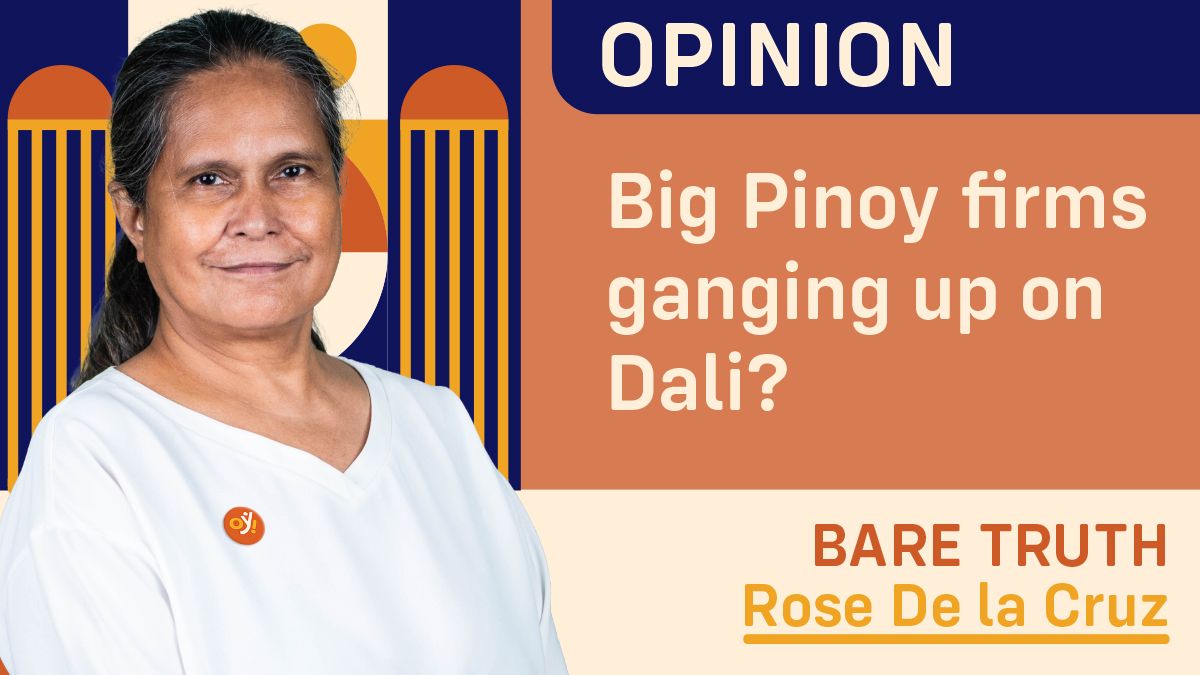Big business in the retailing sector just won’t stop demonizing the meteoric expansion of Dali Everyday Grocery of the Hard Discount Philippines Inc., funded up to $25 million by the Asian Development Bank and Switzerland-founded Dali Discount AG up to P4.67 billion.
They see Dali not just as a threat but also a stealer of intellectual property by using bottles and packaging labels very similar to existing local brands in the market. Ergo, they want the government to clamp down and even close (for good) the Dali business in the country.
Mind you, we are talking here of really big retail chains and megastores, whose products are priced too high (even more than those of same products in wet and public markets) whom they crashed so hard when they began operations in their current localities.
As of end-2023 HDPI and its equity firm, Venturi Partners invested $25 million, attracted by DALI’s strong business model, capable management team (many of them from current megastores of local mall chains) and the promising growth potential of the Philippine retail market, Inquirer reported last July 9. They insist that Dali must stop the sale of suspected rip off products.
The report said Dali sells Kulina catsup and chili sauce, and Rajah Puro vinegar and soy sauce in packaging confusingly similar to Nutri-Asia’s popular household brands UFC and Datu Puti products, which prompted the Intellectual Property Office of the Philippines (IPOPHL) Director General Rowel Barba to issue an injunction against the Dali Everyday Grocery (Dali) last February, compelling the supermarket chain to pull out three condiment products from its store shelves that have packaging strikingly similar to other popular brands. However there are still pending incidents in the case and trial is ongoing, the Inquirer reported.
The Department of Trade has also issued in May a show cause order to Dali for 13 complaints filed by consumer rights group, Malayang Konsyumer (which I suspect some are at the behest of DALI’s competitors– the big business). There are issues in branches in Marikina, Rizal and Paranaque, the DTI said. The DTI said there were allegations of arrogant and rude cashiers, sanitary issues, erroneous weighing of goods and shoppers being mistaken as shoplifters (sounds pretty much the tactic used by big supermarkets against their competitors).
The trade official said there were also allegations of cashiers being arrogant and rude, sanitary issues, erroneous weighing of goods, and shoppers getting mistaken as shoplifters, among others.
If found guilty, Nograles said the company could face an administrative fine of up to P300,000 and possible sanctions.
Despite all these setbacks, DALI told ABS CBN that it is confident of turning around its financial operations in the next five years through cost efficiency measures.
Since opening its first store in Laguna in February 2020, DALI, has faced financial challenges. Despite a 141 percent leap in revenue to P22.3 billion, its losses more than doubled to P1.88 billion last year. As of end-2023, cumulative losses amounted to P3.26 billion, resulting in a capital deficit of P1.29 billion.
The company’s aggressive expansion efforts contributed to a 255 percent surge in operating expenses, reaching P3.01 billion.
DALI’s commitment to affordability and convenience is drawing budget-conscious Filipino consumers, potentially challenging established retail giants like the Sy family’s SM, Robinsons of the Gokongweis, and Lucio Co’s Puregold.
#WeTakeAStand #OpinYon #OpinYonColumn #ColumnbyRosedelaCruz #BareTruth #DaliEverydayGrocery
